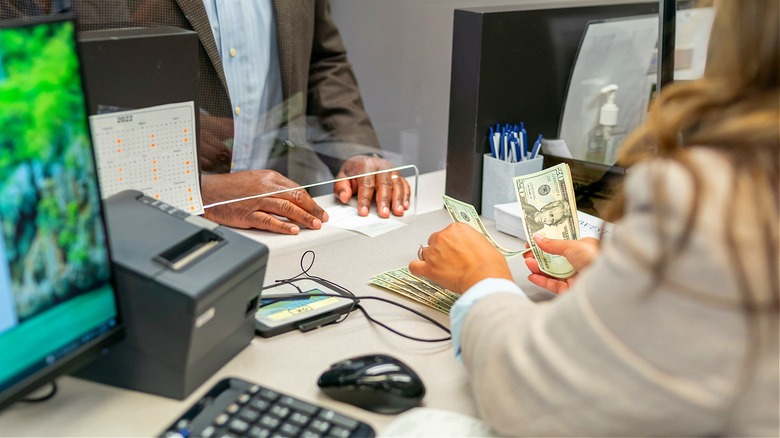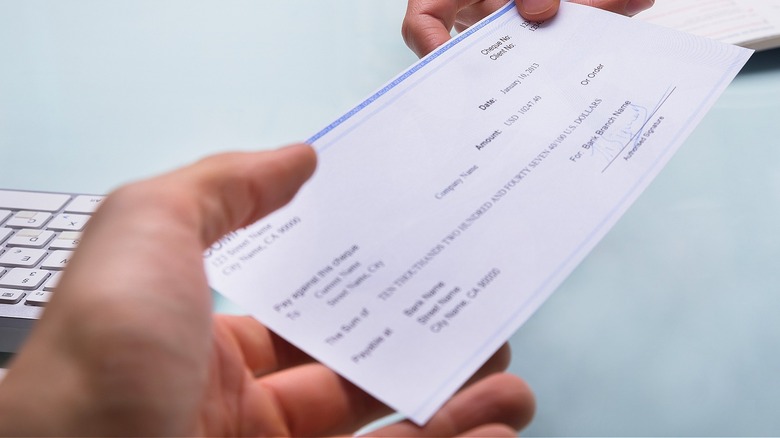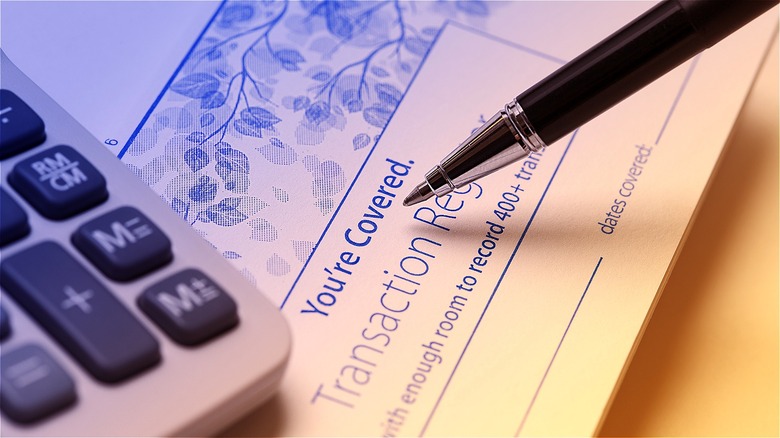One Thing You Should Always Keep In Mind When Cashing A Check
The days of paper checks are long past in the United States. In fact, according to The Washington Post's Department of Data, in 2020 and 2021, 57% of Americans said they hadn't written a check in the past month. And, when consumers do write paper checks, it's typically for big-ticket items or to pay for a service. The Post found that 43% of check-writing is to pay contractors, such as plumbers, electricians, or landscapers. As for personal reasons, such as gifts and repayments, Americans use checks 9% of the time. So, it's possible you may end up losing track of a check you were given for your birthday or to repay that half of lunch you helped cover for a friend. But, this is actually the very thing you should keep in mind when cashing a check: when it was written, as checks can go stale.
Personal and business checks are typically good for 180 days, after which time they become "stale." Per the Uniform Commercial Code, a set of laws that govern all commercial transactions in the U.S., a bank is "under no obligation" to cash a personal/business check that's more than six months old.
When different types of checks go stale
When you receive a check, it's a good idea to deposit it as soon as you can. And with banking apps today allowing members to deposit their checks digitally, this is easier than ever. This said, different checks do have different time frames as far as when they go stale. While both personal and business checks go stale after 180 days, U.S. Treasury checks, for example, are good for 12 months after the date on the check. Once a year is up, you can still get your money, you'll just need to request a new check from the relevant government agency.
As for cashier's checks and certified checks, these are both issued by banks. Cashier's checks use funds from a bank, while certified checks use funds from a person's account (and are certified by the bank that the funds are available). When cashier's checks expire varies, so check for a disclaimer, which will indicate when the check may be void (typically after 60, 90, or 180 days).
This said, if there isn't a date, the cashier's check is good for as long as the bank that issued it is in operation. Certified checks, meanwhile, have no expiration, though if it's not cashed within a certain period of time, it could be subject to a state's unclaimed property laws. In California, for instance, this is typically three years.
What to do about a stale check
If you forget about cashing a check and it ends up going stale, what should you do? If you try and desposit or cash the check, it's at the bank's discretion to decide whether or not to accept it. If it does, and the check ends up getting returned for insufficient funds from the issuing bank, then your bank can 1) reverse the funds and 2) charge you a "deposit item returned" fee. Per the Bureau of Consumer Financial Protection, this fee is typically in the range of $10 to $19, depending on the bank. For this reason, it's a good idea to first contact the person who wrote you the check and ask for a new one, which will also let them know to expect the funds to be debited from their account.
According to The Washington Post, in addition to paying contractors and buying big-ticket items, people still use checks for paying rent (19%), donating to charities (35%), and paying government taxes or fees (27%). If you write a check, keep track of it to make sure it's cashed, so that you can keep your own finances in order. If a check isn't cashed in a timely manner, and you forget about it, too, it could end up getting cashed down the road when your account balance no longer expects it.


